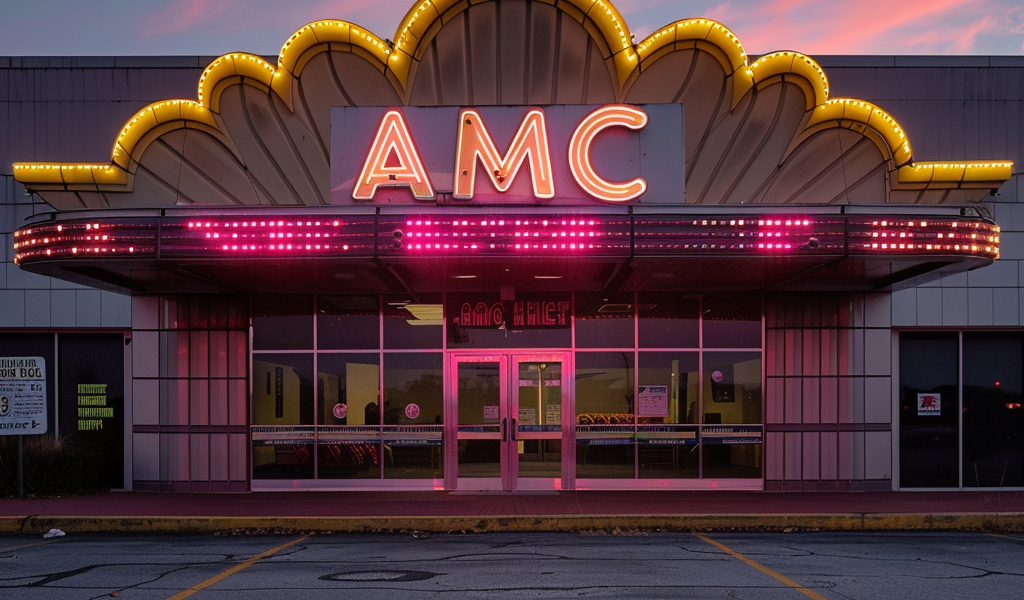AMC Theatres, the largest movie theater chain in the world, has reported a staggering quarterly loss of $32.8 million, primarily attributed to ongoing Hollywood strikes and a lackluster summer movie season. The theater chain’s financial struggles have been exacerbated by the absence of blockbuster films, with significant releases such as “Furiosa: A Mad Max Saga,” “The Fall Guy,” and “Horizon: An American Saga – Chapter 1” failing to perform at the box office.
During the three-month period ending in June, AMC’s revenue plummeted by 23.5%, falling to $1.03 billion from $1.35 billion in the same quarter last year. The net loss marks a stark contrast to the previous year’s profit of $8.6 million, showcasing the dramatic shift in the company’s financial health. Additionally, adjusted EBITDA took a significant hit, dropping to $29.4 million from $182.5 million in the previous year.
The decline in attendance was also notable, with just over 50 million patrons visiting AMC theaters compared to 66.4 million during the same period last year. This decline coincided with a time when popular films like “Spider-Man: Across the Spider-Verse” and “Guardians of the Galaxy Vol. 3” attracted large audiences.
Despite the dismal quarterly results, there was a glimmer of hope as the quarter came to a close. June saw a resurgence in attendance with the release of Disney and Pixar’s highly anticipated “Inside Out 2” and Sony’s “Bad Boys: Ride or Die,” which helped fill auditoriums and boost revenues. The momentum continued into July, which is part of AMC’s next financial quarter, featuring major hits like “Deadpool & Wolverine,” “Despicable Me 4,” and “Twisters.”
AMC’s CEO, Adam Aron, highlighted this turnaround, stating that the performance difference between the early and late quarters felt like two entirely different companies operating under contrasting industry conditions. This shift in dynamics suggests that while the initial part of the quarter was fraught with challenges, the latter part showed signs of recovery.
Looking ahead, AMC has acknowledged that the labor issues affecting the movie industry could lead to earnings falling short of previous projections. Despite the disappointing earnings, AMC’s stock saw a rise of more than 3% in after-hours trading, reaching around $5 a share. This increase indicates that investors had already anticipated the poor financial results.
AMC Theatres has been grappling with financial difficulties in recent years, burdened by a substantial debt load of $4.9 billion. The company has sought various strategies to navigate these challenges, including refinancing its debt to extend due dates by at least three years. This move is part of AMC’s broader efforts to ensure its long-term viability in an evolving entertainment landscape.
The ongoing writers’ and actors’ strikes have significantly impacted the production of new films, leading to a scarcity of content for theaters. As a result, many cinema chains, including AMC, are feeling the effects of this disruption. The industry is now facing a critical juncture as it attempts to recover from the pandemic’s impact and the current labor strife.
While AMC has experienced a tough quarter, the recent influx of successful movies may provide a much-needed boost to the theater chain’s fortunes. The company remains hopeful that the upcoming film slate will help attract audiences back to theaters, ultimately driving revenue growth and improving overall financial performance.
As the film industry continues to evolve, AMC Theatres is poised to adapt to new challenges and opportunities. The company’s ability to navigate this turbulent period will be essential for its recovery and future success in the competitive landscape of movie exhibition.





